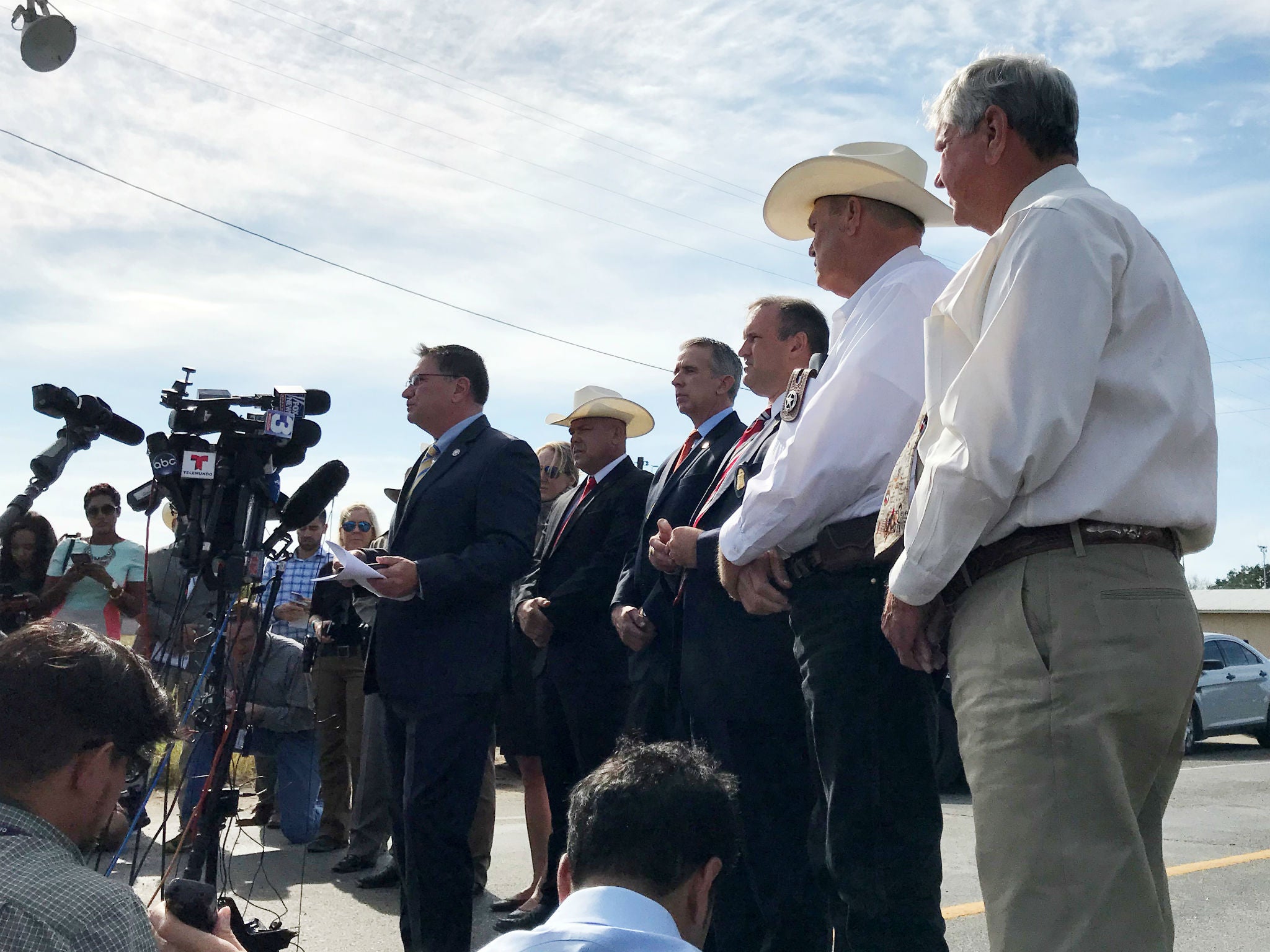Texas shooting: Investigators refrain from using church gunman's name to avoid 'glorifying' killer
Police piecing together motive for Sutherland Springs massacre

Your support helps us to tell the story
From reproductive rights to climate change to Big Tech, The Independent is on the ground when the story is developing. Whether it's investigating the financials of Elon Musk's pro-Trump PAC or producing our latest documentary, 'The A Word', which shines a light on the American women fighting for reproductive rights, we know how important it is to parse out the facts from the messaging.
At such a critical moment in US history, we need reporters on the ground. Your donation allows us to keep sending journalists to speak to both sides of the story.
The Independent is trusted by Americans across the entire political spectrum. And unlike many other quality news outlets, we choose not to lock Americans out of our reporting and analysis with paywalls. We believe quality journalism should be available to everyone, paid for by those who can afford it.
Your support makes all the difference.The shooter's name went unspoken at a news conference on the killings at a church in Sutherland Springs, Texas, and authorities there said they intend to keep refraining from saying it.
“We do not want to glorify him and what he has done,” Texas Department of Public Safety Regional Director Freeman Martin said at the Monday briefing.
FBI Special Agent in Charge Christopher Combs agreed, saying “we don't talk about the shooter” in the hope that it “doesn't encourage other people to do horrific acts.”
That choice reflects a larger movement of authorities, victims' families and academics who want to deny to mass killers the fame they often seek, and to keep from inspiring the next one.
The message: Don't hide information, but don't hype it. Report the name of a shooter when it's first released, then leave it out.
The movement was created by No Notoriety, a group at the forefront of the effort that focuses on spreading simple, meme-friendly ideas.
“Stop making rampage mass murderers famous,” read a post on Facebook and Twitter, along with a blotted out photo of the Texas shooter, who killed 26 people.
“Focus on victims and heroes — not their killers!” one popular post said.
Caren and Tom Teves, whose son, Alex, was killed while shielding his girlfriend in the 2012 shooting in Aurora, Colorado, started the group. They were driven to act by feelings of disgust, but found common cause with experts.
While the immediate provocations for shooters differ — authorities in Texas said the shooting may have been prompted by a domestic violence situation — most seek the same kind of attention.
Zeynep Tufekci, a professor at the University of North Carolina who studies the social effects of technology, said evidence shows that future mass shooters were carefully watching coverage of the most recent attacks.
She has repeatedly urged — both online and in op-eds — that outlets should avoid repetition of the killer's name and face and steer clear of step-by-step discussions of their methods.
“It's past time that we considered less sensationalist ways of covering mass shootings, and reported such grim news without plastering the killer's name and face everywhere,” Tufekci told The Associated Press in an email.
Tufecki said media outlets already are cautious in what they report about suicides for fear of inspiring copycats, and doing the same for mass shooters would be “just sound editorial policy, not censorship.”
The policy of The Associated Press is to use the name of the alleged perpetrator as provided by police or other authorities.
The AP does have guidelines for withholding names and images in other cases, however, including those of people who say they have been sexually assaulted or subjected to extreme abuse.
AP
Join our commenting forum
Join thought-provoking conversations, follow other Independent readers and see their replies
Comments